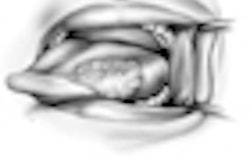A naturally occurring, harmless human virus may boost the effects of two standard chemotherapy drugs in some cancer patients, according to new data published in Clinical Cancer Research.
RT3D (trade name Reolysin), a new drug developed by Oncolytics Biotech, is undergoing preclinical and clinical studies at the Institute of Cancer Research (ICR) and the Royal Marsden Hospital, according to a press release. It is based on a virus (reovirus type 3 Dearing) found in almost all adults' respiratory and gastrointestinal tracts without causing any symptoms.
RT3D has the ability to grow in and kill certain types of cancer cells, but does not grow in normal cells, the researchers explained. Previous trials injecting patients with the virus on its own showed limited effectiveness, but the researchers found that RT3D appeared to magnify the effects of platin and taxane-based chemotherapy on tumor cells.
Kevin Harrington, PhD, and colleagues started a clinical trial testing intravenous RT3D in combination with chemotherapeutics carboplatin and paclitaxel in 31 patients with advanced cancers who had stopped responding to standard treatments. The Phase I study, which was carried out in patients with a range of advanced cancers, showed the drug combination was safe (CCR, April 2012, Vol 18, pp. 2080-2089). Side effects were found to be generally mild and consistent with chemotherapy alone.
Patients with head and neck cancers were found to have the best responses, so a Phase II expansion study at the Royal Marsden Hospital and St James's Hospital was targeted to patients with these types of cancers. Cancers shrank for about one-third of the patients who could be evaluated, and disease stabilized for another third of the patients. For one patient, all signs of their cancer disappeared.
The study also found the virus was not shed after treatment, meaning that people could be given the drug as outpatients because there was no risk that they could not transmit the virus to others.



















